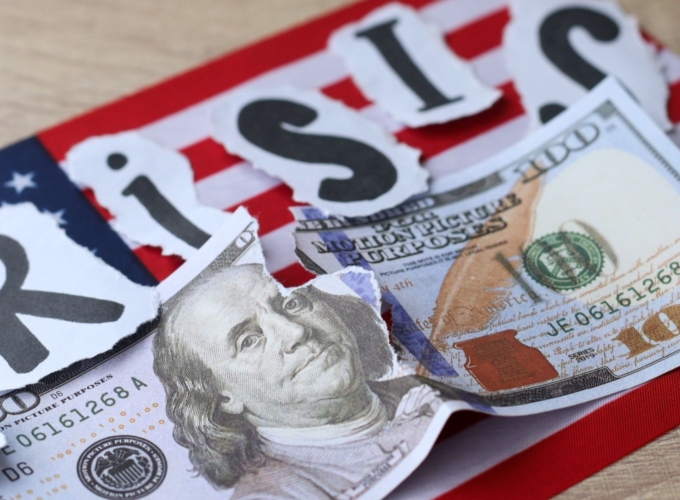

The Debt Ceiling: Should we be worried?
The big headline these days is that the United States is getting close to its Congressionally mandated “debt ceiling” or “debt limit.” If Congress doesn’t act, it is possible that our government could actually default on its obligations, and there is a lot of alarming commentary discussing the potentially dire repercussions of such a scenario.
So, what is this debt limit?
Per the U.S. Department of the Treasury:
“The debt limit is the total amount of money that the United States government is authorized to borrow to meet its existing legal obligations, including Social Security and Medicare benefits, military salaries, interest on the national debt, tax refunds, and other payments.”
“The debt limit does not authorize new spending commitments. It simply allows the government to finance existing legal obligations that Congresses and presidents of both parties have made in the past.” [1]
And what if we hit the ceiling and actually default on our obligations? Treasury has something to say about that too:
“Failing to increase the debt limit would have catastrophic economic consequences. It would cause the government to default on its legal obligations – an unprecedented event in American history. That would precipitate another financial crisis and threaten the jobs and savings of everyday Americans – putting the United States right back in a deep economic hole, just as the country is recovering from the recent recession.” [1]
And the White House pretty much agrees with Treasury:
“An actual breach of the U.S. debt ceiling would likely cause severe damage to the U.S. economy. Analysis by CEA and outside researchers illustrates that if the U.S. government were to default on its obligations—whether to creditors, contractors, or citizens—the economy would quickly shift into reverse, with the depth of the losses a function of how long the breach lasted. A protracted default would likely lead to severe damage to the economy, with job growth swinging from its current pace of robust gains to losses numbering in the millions.” [2]
So what do we make of this? Should we be alarmed?
Well, first, it’s actually pretty unlikely that we will end up in a default. Again from the Department of the Treasury:
“Congress has always acted when called upon to raise the debt limit. Since 1960, Congress has acted 78 separate times to permanently raise, temporarily extend, or revise the definition of the debt limit – 49 times under Republican presidents and 29 times under Democratic presidents. Congressional leaders in both parties have recognized that this is necessary.” [1]
Is it likely that this time is truly different, and that on this 79th occasion of these generally contentious negotiations, Congress will for the first time ever fail to act? Probably not. But let’s say that in this current politically divided, highly contentious period of time, Congress actually does fail to act in time to avoid a default. How would that play out?
Frankly, we don’t really know because it has never happened, but if it did, we would expect that it would be fairly short-lived. Given that the U.S. dollar is the world’s primary reserve currency, probably the most economically catastrophic event related to a default would be if the government were to default on the payment of interest and principal due on Treasury securities. For this reason, we would expect that the Treasury Department would likely suspend other payments before defaulting on its debt if at all possible – such as payments to Veterans or Social Security recipients. Can you imagine the uproar against Congress if that were to occur? Do you think there might be some major political backlash? We can’t imagine that this outcome is in any way amenable to the members of Congress, which is why we think it’s unlikely we’ll even get there… but if we do, we think that it will be short-lived, and that it’s extremely unlikely we’ll get to the stage of defaulting on our Treasury Securities.
So the bottom line is that while this situation is disconcerting and not to be dismissed, it’s just one more in a long line of ongoing uncertainties that perpetually face us as investors (a few that come to mind over the past several years are a pandemic, a Russian invasion of Ukraine, a spike in inflation, a spike in interest rates, and a banking crisis). We earn better long-term returns for being invested in markets over time, precisely because we are taking on this uncertainty (AKA risk).
As always, please reach out to us with any questions or comments.
[1] U.S. Department of the Treasury, Debt Limit [2] The White House, The Potential Economic Impacts of Various Debt Ceiling Scenarios
The information provided herein is for educational purposes only, and should not be construed as advice, including, but not limited to tax, legal, insurance, investment, or retirement advice. For your specific planning needs, please seek the advice of Integris Wealth Management, your tax accountant, attorney, insurance agent, or other professional as appropriate. Investing involves the risk of loss.




